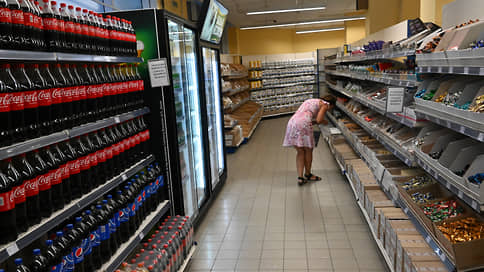Soda is closed from taxes – Newspaper Kommersant No. 180 (7381) of 09/29/2022
[ad_1]

The idea of regulators to raise 35 billion rubles in 2023 with producers of soft drinks with sugar met the expected resistance from the industry. The Union of Producers of Juices, Water and Drinks (Soyuznapitki) wrote to Prime Minister Mikhail Mishustin that he considers the initiative untimely. And market participants point to the risks of falling production against the backdrop of a reduction in the presence of Coca-Cola and PepsiCo in the Russian Federation.
Kommersant has read a letter from Soyuznapitka President Maxim Novikov to Prime Minister Mikhail Mishustin dated September 27, which notes the untimely introduction of excise taxes on sugar-containing soft drinks. On September 28, the Government of the Russian Federation submitted the relevant draft amendments to the Tax Code to the State Duma. It is assumed that from January 1, 2023, 1 liter of a drink with a sugar content of more than 5 g per 100 ml will be subject to an excise tax of 7 rubles. On Wednesday, Kommersant was told in the government apparatus that the appeal had not yet been received.
Excises are needed to finance the fight against diabetes, according to an explanatory note to the bill. In 2023, the budget should receive an additional 35 billion rubles from the recognition of sugar-containing drinks as excisable. But, according to a letter from Soyuznapitka, sweet sodas account for 1.5% of sugar consumption in Russia. “Therefore, reducing the consumption of soft drinks will not lead to a reduction in the consumption of sugar per se,” the letter states. According to the association, it is more effective to influence the consumption of sugar in its pure form, which accounts for 55% of demand.
The Soyuznapitka letter notes that the idea of new excises was being worked out in the government in 2021-2022. In August of this year, the Ministry of Finance agreed that it is possible to continue work on the taxation of sugar-containing drinks after the stabilization of the economic situation, which is not yet discussed, the appeal says. A Kommersant source in the market indicates that the Ministry of Health again proposed the idea to the Ministry of Finance. “In fact, the decision was made by these two departments, without consultation with the industry,” the interlocutor of Kommersant was outraged. The Ministry of Finance and the Ministry of Health did not provide a comment. The Ministry of Agriculture told Kommersant that the introduction of excises could lead to higher prices and lower production, as well as the formation of an illegal market. In this case, the effect of the receipt of excise duties can be offset by a reduction in tax deductions, the representative of the Ministry of Agriculture notes.
Yury Antonov, General Director of MPBK Ochakovo (CoolCola, Fancy and Street brands), also believes that the measure entails an increase in costs and, as a result, an increase in prices for consumers. A Kommersant source says that drinks can rise in price by an average excise tax. Mr. Antonov adds that the imposition of excises is especially inappropriate in a situation where Russian companies are beginning to replace the market after the suspension of work in the country of Coca-Cola and the cessation of PepsiCo spilling Pepsi, Mirinda and 7Up in Russia. Moulton Partners (formerly Coca-Cola HBC) and PepsiCo declined to comment.
A Kommersant source among manufacturers adds that both the size of the excise tax and the cut-off for sugar content – 5 g per 100 ml – raise questions. A standard soda has about 10 grams of sugar per 100 ml, he says, and in recent years many companies have reduced the figure to 6-7 grams per 100 ml. At a level of 5 g per 100 ml, all drinks with sugar can fall under the excise tax, which makes it pointless for companies to independently reduce the use of the ingredient, the interlocutor of Kommersant points out. A representative of the Vyatich plant (Vyatskiye Drinks brand) supports the introduction of an excise tax as a means of combating diabetes. The economic impact of the measure on the industry will be small, he said.
Marat Ibragimov, a senior analyst at Gazprombank, believes that from the point of view of filling the budget, the introduction of an excise tax will not have any great effect, but may create difficulties for beverage producers. In the current difficult macroeconomic conditions, when the government’s efforts are aimed at stimulating business activity, this is not the most correct option, he is sure.
[ad_2]
Source link





